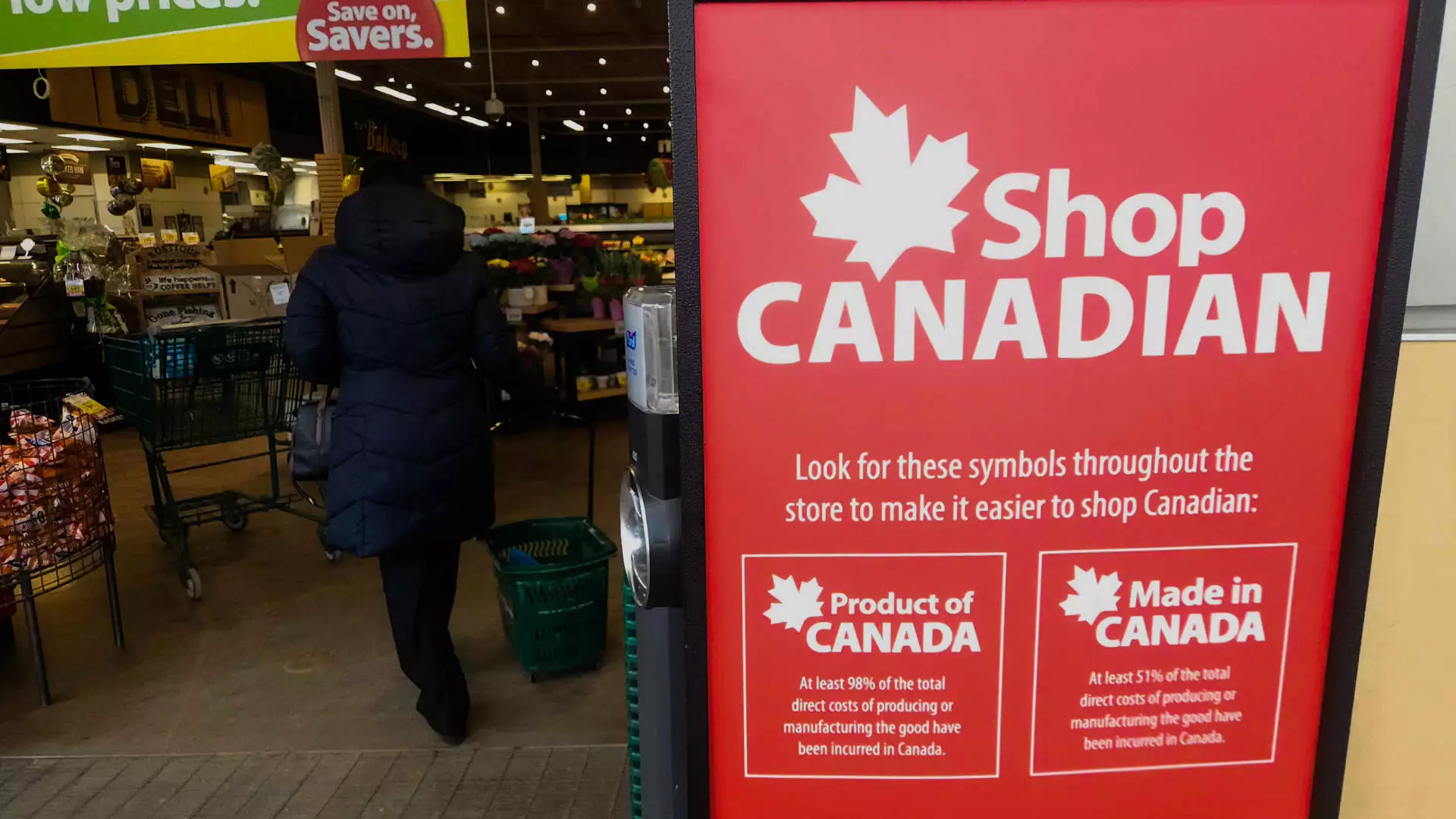In recent years, economic relations between the United States and Canada have been increasingly plagued by tariffs designed to protect domestic manufacturing. The administration’s aggressive stance on trade has not only ignited political debates but also sparked a seismic shift in the dynamics of transnational business. The direct fallout from these tariffs has left small businesses in Canada grappling with obstacles that threaten their very existence. As these firms navigate a complicated landscape of rising costs and damaged trust, one has to wonder: Is the price of protecting American jobs worth destabilizing our closest economic ally?
The Historical Context: A Fragile Foundation
For decades, the trade relationship between the U.S. and Canada has been characterized by an intricate interdependence. According to statistics, trade between the two nations exceeded $762 billion in 2024, revealing an economic bond that extends beyond mere numbers. Canada is not just a supplier but is also integral to the U.S. supply chain; over half of its goods are imported from the U.S. This interconnectedness has historically been a source of strength for both countries. However, the abrupt implementation of tariffs threatens to disrupt this delicate balance. Canadian businesses—especially small enterprises—fear that punitive measures could create an environment of retaliation and hostility rather than cooperation.
The Financial Toll: Small Businesses Under Siege
The imposition of tariffs, with severe penalties like 10% on Canadian energy and a staggering 25% on vehicles, has forced small businesses to reconsider their operational models. Analysts from the Canadian Federation of Independent Business (CFIB) indicate that approximately half of their members are engaged in cross-border trade. The ripple effects of tariffs mean that these entrepreneurs must grapple not only with increased costs but also with the potential alienation of U.S. partners. Many firms are now facing the sobering reality of supply chain disruptions, and some are asking hard questions about their future collaborations with American companies.
“It felt like a betrayal,” said Corinne Pohlmann of CFIB, summarizing the emotional impact of these policies on Canadian businessmen and women. The feeling of trust erosion stems from long-standing partnerships that are now under threat. Entrepreneurs who have built their businesses alongside American counterparts are left uncertain about the future of these relationships.
Local Responses: A New Wave of Patriotism?
In response to these tariffs, Canadian businesses have begun to redefine their identities. For instance, Balzac’s Coffee Roasters rebranded their “Americano” to a proudly Canadian “Canadiano.” This subtle yet impactful move embodies a sense of national pride and resilience in the face of adversity. Additionally, retail chains like Your Independent Grocers are taking similar action by emphasizing Canadian-made products, infusing a patriotic element into their marketing strategies. This noteworthy resistance is not merely an economic decision; it reflects a psychological and emotional response to the perceived betrayal by their largest trading partner.
Further, the Liquor Control Board of Ontario’s decision to halt purchases of U.S. products poses an intriguing question: Is economic self-sufficiency the way forward? By promoting Canadian products and implementing visible markers for tariff-impacted items, businesses are looking to cultivate a stronger sense of consumer loyalty while sending a clear message of resistance to U.S. policies. Yet this raises another question: Can a nation really isolate itself from an economy as vast and influential as the U.S. without falling into isolationism?
The Diplomatic Fallout: Eroding Trust
Geopolitical relationships are often driven by mutual trust and interdependence, factors that are currently at risk due to the ongoing trade war. Former Secretary of State Antony Blinken articulated a crucial concern—when tariffs disrupt the fabric of diplomacy, they also risk damaging America’s “soft power.” Historically, the U.S. has leveraged its economic relationships as diplomatic tools for garnering international influence. However, the rising tensions with Canadian businesses may signal a decline in this form of power.
The emotional distress among Canadian businesses cannot be overstated. With over half of CFIB members agreeing that the U.S. is no longer a reliable trading partner, the future seems more uncertain than ever. Once reliable contracts and long-lasting partnerships now hang by a thread, leading to a pervasive sense of vulnerability in the Canadian market.
A Long Road Back: The Path to Rebuilding Trust
Even if the U.S. were to roll back tariffs, the scars created by this trade conflict may take years to heal. Tariffs have transcended mere economic barriers and have come to represent a broader ideological shift. Canadian businesses are now forced to weigh not just the immediate financial implications but also the long-term relationships that have been fractured. Loyal partnerships developed over years are now questioned, leading to negotiations that will require considerable trust-building efforts.
Despite the possibility of a future where tariffs are lifted, the emotional damage inflicted on the Canadian business community may linger. The real challenge will be to restore faith not just in trading, but in the broader U.S.-Canada relationship, which has historically been one of mutual support and trust.

